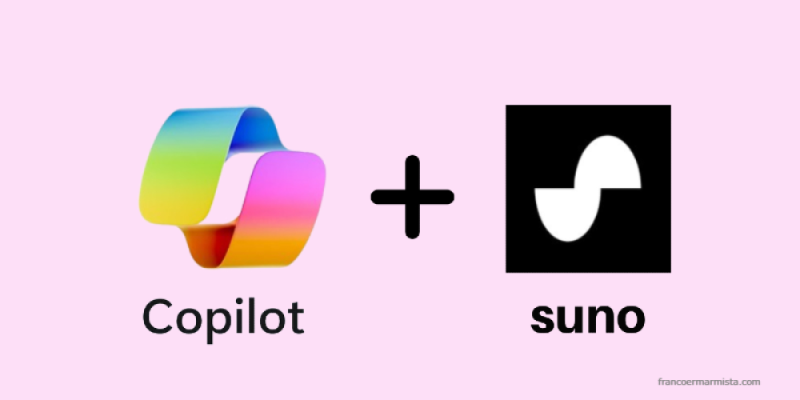
- 19 Dec 2023
Microsoft Unveils Copilot's Integration with GenAI App Suno for Tailored Song Creation
Microsoft's latest innovation, Copilot, integrates with the GenAI music application Suno to transform user prompts into full-fledged songs. By simply typing requests, such as crafting a pop tune centered around family adventures, users can harness Suno's capability to generate complete musical pieces complete with lyrics, melodies, and vocals.
To use this feature, customers simply need to start Microsoft Edge, visit the Copilot website, sign in using their Microsoft credentials, and activate Suno via a plugin or by clicking the Suno icon encouraging users to "Make music with Suno."
According to a recent Microsoft Bing blog post, this blend of music and technology is anticipated to break new ground in the realms of creativity and fun by democratizing the process of making music. This new feature rollout has begun and will progressively reach more users over the ensuing weeks.
The tech industry, including both prominent corporations and emerging startups, is witnessing a surge in investment in AI-driven music composition technologies. Notable developments from November include DeepMind and YouTube's partnership to release Lyria — a GenAI music model — and Dream Track, an AI tool for crafting tunes on YouTube Shorts. Simultaneously, Meta has experimented with AI music generation, while Stability AI and Riffusion have developed platforms for creating songs and sounds based on user prompts.
However, the moral and legal questions associated with AI-synthesized music still require addressing. As algorithms absorb the essence of existing music to replicate its qualities, artists, and users express their unease, particularly when the algorithms are trained without the creators' consent or compensation.
The issues have even affected industry recognition; for instance, the Grammys have excluded AI-generated songs from award consideration entirely. Also notable is the departure of Stability AI's audio lead, who criticized GenAI for exploiting artists.
While many of these companies claim fair use rights, allowing them to utilize public works without paying the original artists, the legality of such practices remains to be settled. Suno itself hasn't disclosed where its AI-trained data originates and does not prevent prompts that suggest mimicking specific artists' styles.
Nonetheless, Suno maintains that it tries to restrict certain queries, its models do not recognize artist names, and it prevents users from inputting lyrics of existing songs to produce imitations.
Pending the resolution of usage rights in court battles, homemade GenAI-assisted tracks imitating well-known sounds are gaining popularity online. Meanwhile, music labels fiercely protect their intellectual property rights, often successfully prompting streaming platforms to take action. In retaliation, GenAI tool developers often migrate to more discreet outlets.
Legal clarity on the fate of GenAI music could be on the horizon, perhaps even preceding court decisions. A new bill introduced in the Senate aims to safeguard artists, including musicians, ensuring they have a legal footing when their digital likenesses or musical styles are used without explicit consent.

0 Comments
Leave a comment
Your comment is awaiting moderation. We save your draft here